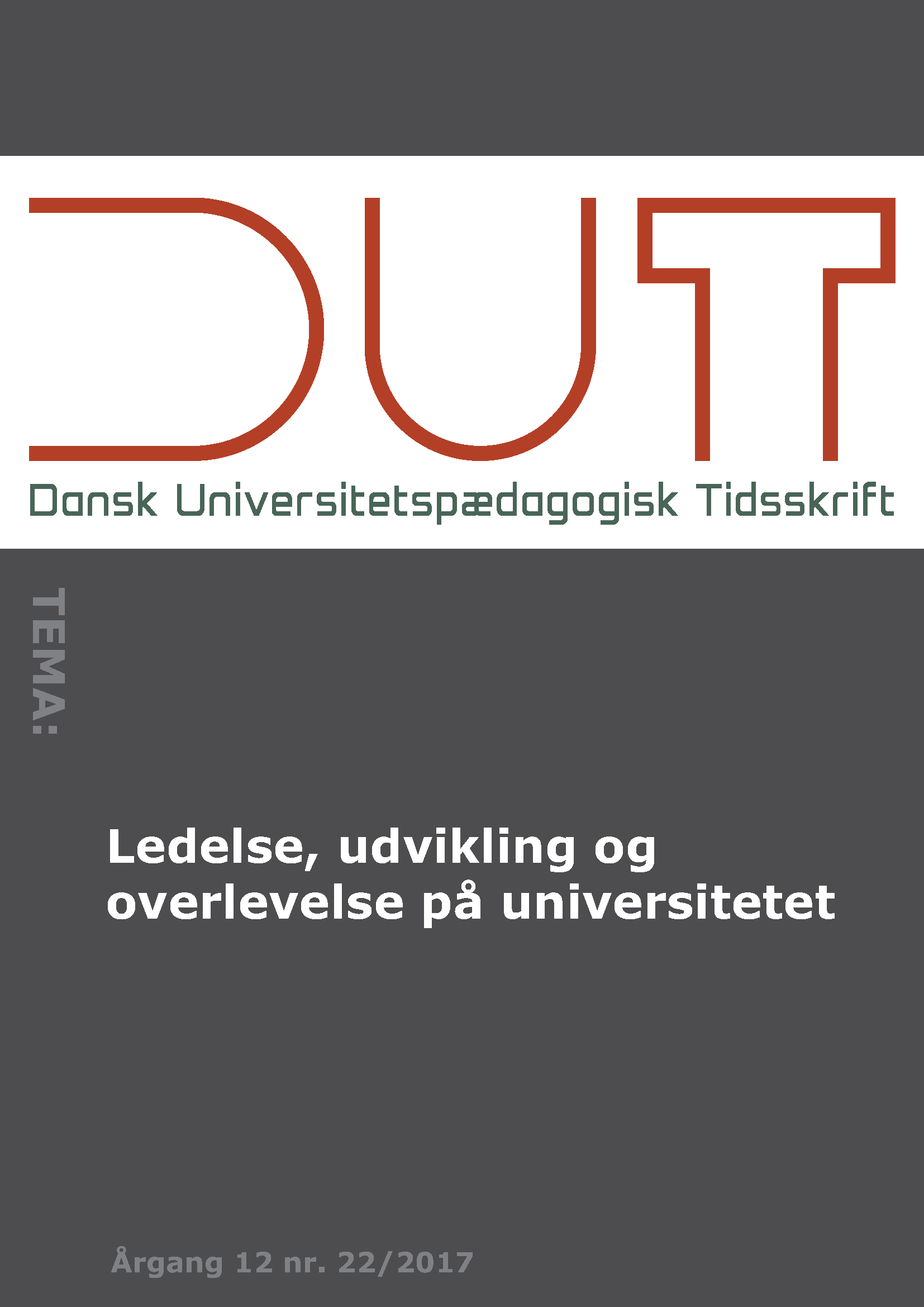Risikonavigation i fremdriftsstormen
DOI:
https://doi.org/10.7146/dut.v12i22.24191Keywords:
Fremdriftsreformen, oversættelse/translation, risiko, risikologik, Latour, studerende, uddannelsesnavigation, policy,Abstract
In Greek mythology, the hero Odysseus receives a gift of the world’s wind in a carefully tied sack. Only one favorable tailwind was free to blow his ship safely home. But in the course of the night, the other winds are released with catastrophic consequences for Odysseus’ fleet, resulting in multiple wrecks. In the article we take the myth about Odysseus and the winds as a picture of students’ educational navigation after the Danish Study progress reform (2013). We show how the reform was initially characterized by an unambiguous belief that it is possible to tether and align the various motives and reasons for studying (winds), all while in practice the students translate the reform’s demand for quick completion in a number of unforeseeable ways. With the concept of “risk translation” we show how the students’ navigations is not just a question of fast completion, but also of protecting a number of often enjoyable, study activities, constituting a good study life. The analysis in this article is built upon a country-wide questionnaire among approximately 4500 university students (2015), along with a series of focus group interviews with students at the University of Copenhagen (2013-2016).Downloads
Additional Files
Published
How to Cite
Issue
Section
License
DUT udkommer elektronisk via Statsbibliotekets Open Journal System (Tidsskrift.dk) og DUNs hjemmeside (DUN-net.dk) forår og efterår. Det er gratis og frit tilgængeligt at læse og downloade artikler fra tidsskriftet.
Det er ikke muligt at abonnere på Dansk Universitetspædagogisk Tidsskrift, DUT, men hvis du er medlem af DUN, får du tilsendt en nyhedsmail med link til udgivelsen, når den nyeste udgave er online. Linket vil også være tilgængeligt her på siden, så snart tidsskriftet er publiceret.
© Copyright
Artikler publiseret i Dansk Universitetspædagogisk Tidsskrift, DUT, må bruges (downloades) og genbruges (distribueres, kopieres, citeres) til ikke-kommercielle formål med reference til forfattere og Dansk Universitetspædagogisk Tidsskrift.
Artikler indsendt til Dansk Universitetspædagogisk Tidsskrift må ikke publiseres i andre tidskrifter.
Betingelser
Artikler i Dansk Universitetspædagogisk Tidsskrift, DUT, er omfattet af ophavsretsloven, og der må citeres fra dem.
Følgende betingelser skal dog være opfyldt:
- Citatet skal være i overensstemmelse med „god skik“
- Der må kun citeres „i det omfang, som betinges af formålet“
- Ophavsmanden til teksten skal krediteres, og kilden skal angives ift. ovenstående bibliografiske oplysninger.





